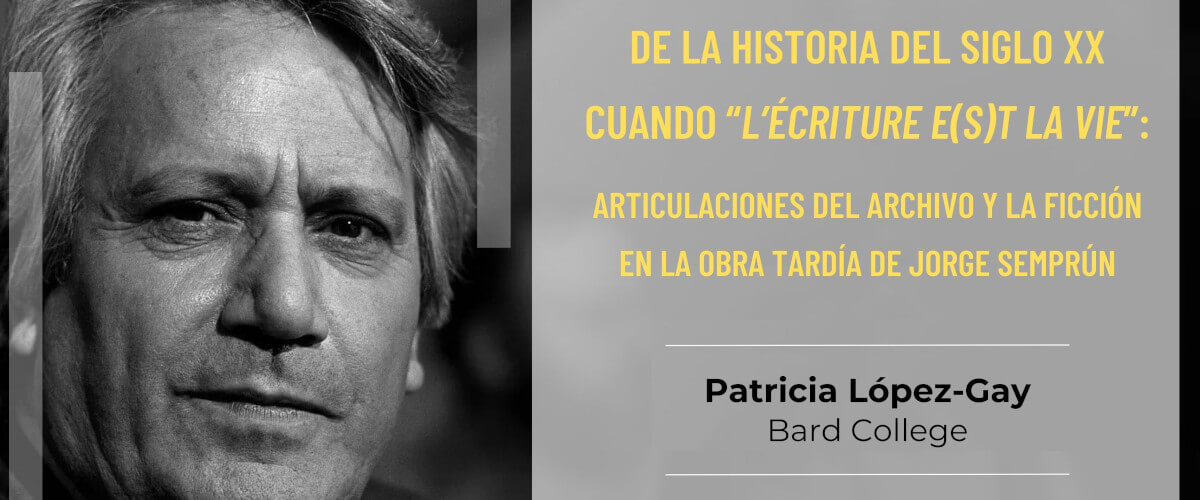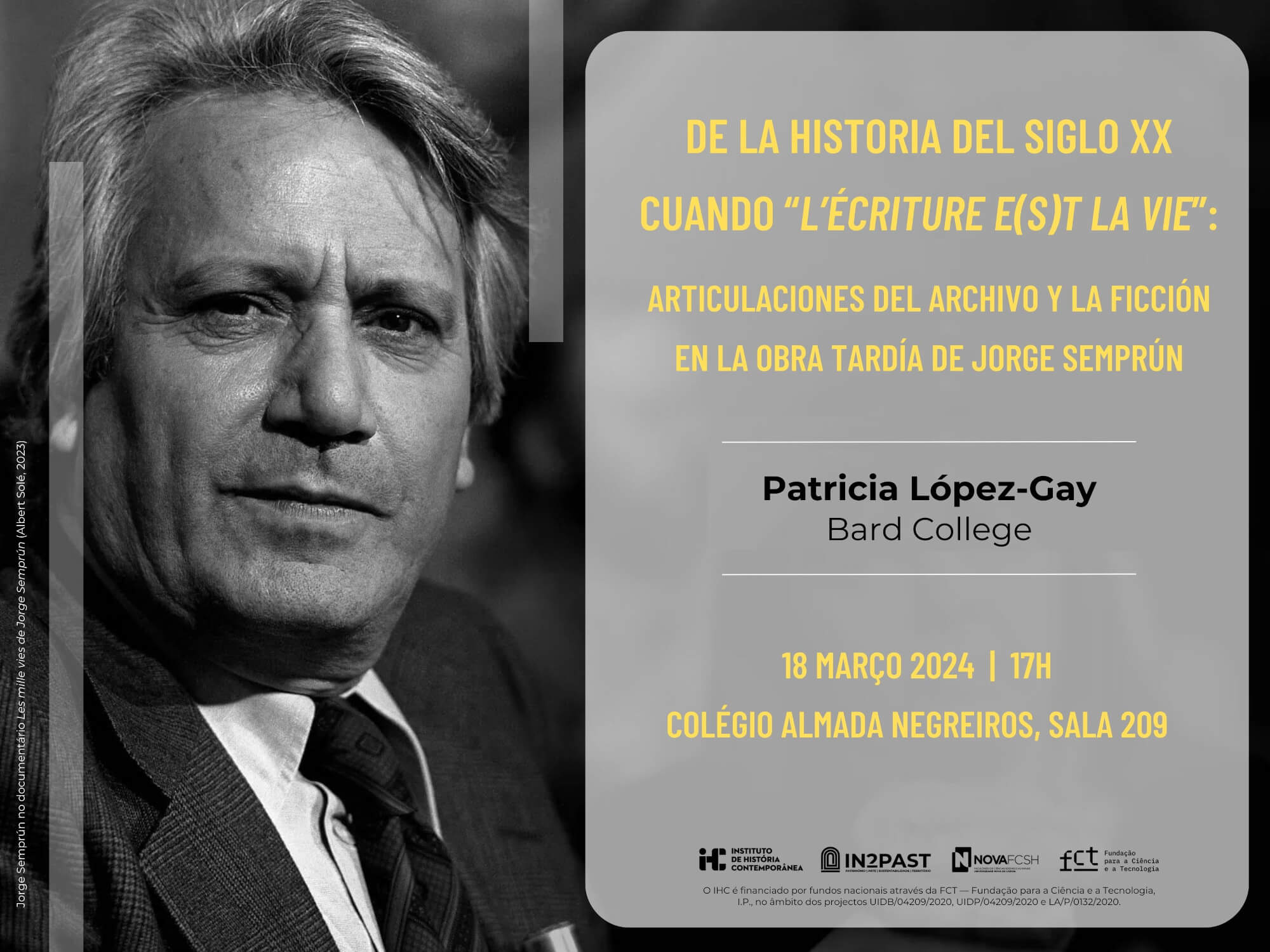março, 2024

Detalhes do Evento
Lecture by Patricia López-Gay on the works of Jorge Semprún, Spanish political activist, public intellectual and writer, with a focus on Practices of Survival (2012).
Ver mais
Detalhes do Evento
Lecture by Patricia López-Gay on the works of Jorge Semprún, Spanish political activist, public intellectual and writer, with a focus on Practices of Survival (2012).
20th-Century History when “L’écriture e(s)t la vie”:
On the Articulations of Fiction and the Archive in the late work of Jorge Semprún
Patricia López-Gay (Bard College / Sciences Po, Paris)
Jorge Semprún (Madrid 1923-Paris 2011) was a militant against modern totalitarianism, as a political activist, through his literary and film writing, and as a Europeanist public intellectual. Semprún’s greatest cultural legacy is his first-hand testimony, through an autofiction that “makes reality truer”, of significant events occurred in 20th-century European history. Exiled in France after the Spanish Civil War, he was deported from Paris to Buchenwald for his activity as a resistance fighter during the Occupation. On his return from the camps, Semprún opted for a life of action as a clandestine combatant against Franco’s regime; he avoided literary writing, which in those early years would bring him back to the experience of death.
In this presentation I will review Semprún’s oeuvre, focusing on a work that has barely received critical attention, the posthumous, incomplete auto-fiction Exercises de survie (Practices of Survival) (2012). In light of the personal and historical records that the author cumulated throughout his life, and the interview I had with him, I will argue that Semprún’s final return to a personal past transmutes itself into “unconventional history” on the basis of memories, personal documents and historical records, without, however, discarding fictionalization. Practices of Survival, I shall argue, is Semprún’s response to the feared end of l’ère du témoin, the era of direct witnesses of the “Absolute Evil” perpetrated by the Nazi. Aware of its own impending vanishment, the autobiographical self no longer seeks, through the drive to rewrite, to bring the disappeared back to life. Instead, Semprún strongly appeals to the duty of the fictions to come from the archive, post-memorial testimonies that will open up an epistemological space from which to move the reader; texts that —following Semprún’s proposed imaginary— will be constituted not so much as an alternative to historical reading and writing practices, but as an unquestionably necessary complement to the latter, from an ethical and political point of view.
About the speaker:
Patricia López-Gay is Professor of Literature and Experimental Humanities at Bard College, New York. She is also a Visiting Professor at Sciences Po, Paris (2023-2024). She specializes in contemporary Spanish literature, with a strong interest in photography and film, and comparative literature (Iberia, Brazil, France). Her research is concerned with fiction and testimony, translation and cultural studies, the relationship between word and image, theories of the archive, and contemporary life narration.
Foto: Jorge Semprún no documentário Les mille vies de Jorge Semprún (Albert Solé, 2023).
Tempo
(Segunda-feira) 5:00 pm - 7:00 pm
Organizador
Institute of Contemporary History — NOVA School of Social Sciences and Humanitiescomunicacao.ihc@fcsh.unl.pt Avenida de Berna, 26C - 1069-061 Lisbon

